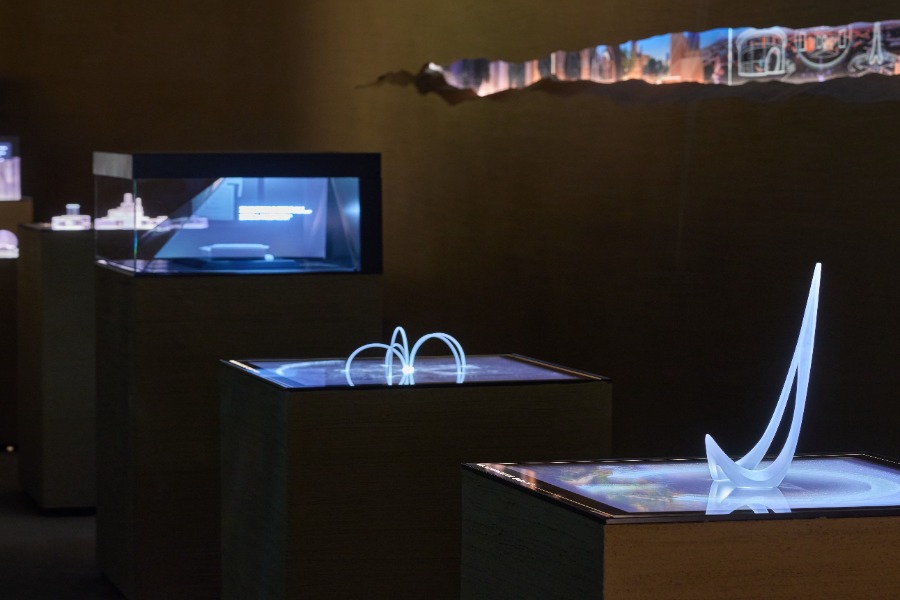Invest in Uzbekistan
A Nation on the Rise
Uzbekistan is rapidly emerging as a dynamic hub for investment, innovation, and sustainable development in Central Asia. With a strategic location bridging Europe and Asia, a youthful and educated population, and a commitment to progressive reforms, the country offers a wealth of opportunities for global investors seeking growth and impact.
The Uzbekistan Pavilion, themed "Garden of Knowledge: A Laboratory for a Future Society," showcases the country's vision for sustainable development and innovation. The exhibition highlights Uzbekistan's commitment to sustainability, education, and cultural exchange. Visitors can explore initiatives like the Aral Sea restoration project and the Aral Culture Summit, which emphasize the integration of environmental and cultural sustainability.
Why Invest in Uzbekistan?
Strategic Location and Connectivity: Situated along the historic Silk Road, Uzbekistan serves as a vital link in regional and international trade networks. The country's participation in initiatives like the China-Kyrgyzstan-Uzbekistan railway project underscores its role in enhancing connectivity and trade across Eurasia.
Robust Economic Growth: Uzbekistan is charting a path to double its GDP to $200 billion by 2030, reflecting its commitment to long-term economic transformation. The country is targeting consistent annual growth of 6–7%, with a strong focus on modernizing industry, increasing exports, and raising labour productivity by 50%. These ambitions are supported by structural reforms, improved governance, and a proactive shift toward a green economy, all aimed at creating a resilient and inclusive economic foundation.
Ambitious Investment Targets: To achieve its 2030 vision, Uzbekistan aims to significantly boost investment across strategic sectors. The government plans to increase the investment-to-GDP ratio to 30%, with a special emphasis on foreign direct investment (FDI). Efforts are underway to streamline administrative procedures, strengthen investor protections, and improve the overall business climate. The 2025 investment goal of $42 billion, including 81 major projects and over 8,000 SME initiatives, marks just the beginning of a broader, long-term mobilization of capital and innovation.
Uzbekistan is prioritising the development of high-value manufacturing sectors and aims to triple exports by 2030. Investments in textile production, metallurgy, chemicals, and electronics are strongly encouraged, supported by government incentives and export-oriented strategies.
The country is accelerating its transition to a low-carbon economy, with a target to generate 54% of its electricity from renewable sources by 2030. This includes large-scale solar and wind energy projects, grid modernization, and green industrial zones.
With an eye on sustainability and efficiency, Uzbekistan is investing in climate-resilient agriculture, value-added agro-processing, and water-saving technologies. These initiatives aim to boost productivity and rural employment.
Uzbekistan stands as a cultural crossroad of civilizations, with a legacy shaped by centuries of exchange along the Silk Road. The country's ancient cities offer a living record of architectural brilliance and cultural dialogue. Uzbekistan safeguards a wealth of tangible and intangible cultural assets. The designation of Bukhara as a UNESCO Creative City of Crafts and Folk Art underscores the vibrancy of these living traditions. Further affirming its global cultural standing, Uzbekistan will host the 43rd session of the UNESCO General Conference in Samarkand from October 30 to November 13, 2025. This historic event marks the first time in four decades that the conference will be held outside Paris, signalling UNESCO's recognition of Uzbekistan’s commitment to heritage preservation and cultural diplomacy. As the nation continues to invest in cultural infrastructure
Uzbekistan is actively developing its creative economy, recognizing its potential to drive sustainable growth and cultural exchange. In October 2024, Tashkent hosted the 4th World Conference on Creative Economy (WCCE), bringing together over 2,000 participants from more than 80 countries. The conference highlighted the transformative role of the creative economy in fostering sustainable global development. Additionally, the inaugural Bukhara Biennial, titled "Recipes for Broken Hearts," is set to launch on September 5, 2025.This 10-week interdisciplinary event will feature over 70 international and local artists, celebrating Bukhara's rich heritage
Digital transformation remains a key pillar of Uzbekistan’s economic strategy. The government is enhancing digital infrastructure, fostering a vibrant tech ecosystem, and supporting innovation to increase the digital economy’s share in GDP from 2.7% to 15% by 2030.
Uzbekistan plans to increase education spending to 6% of GDP and expand access to quality learning and vocational training, thereby building a competitive workforce for the future.

.jpg)



